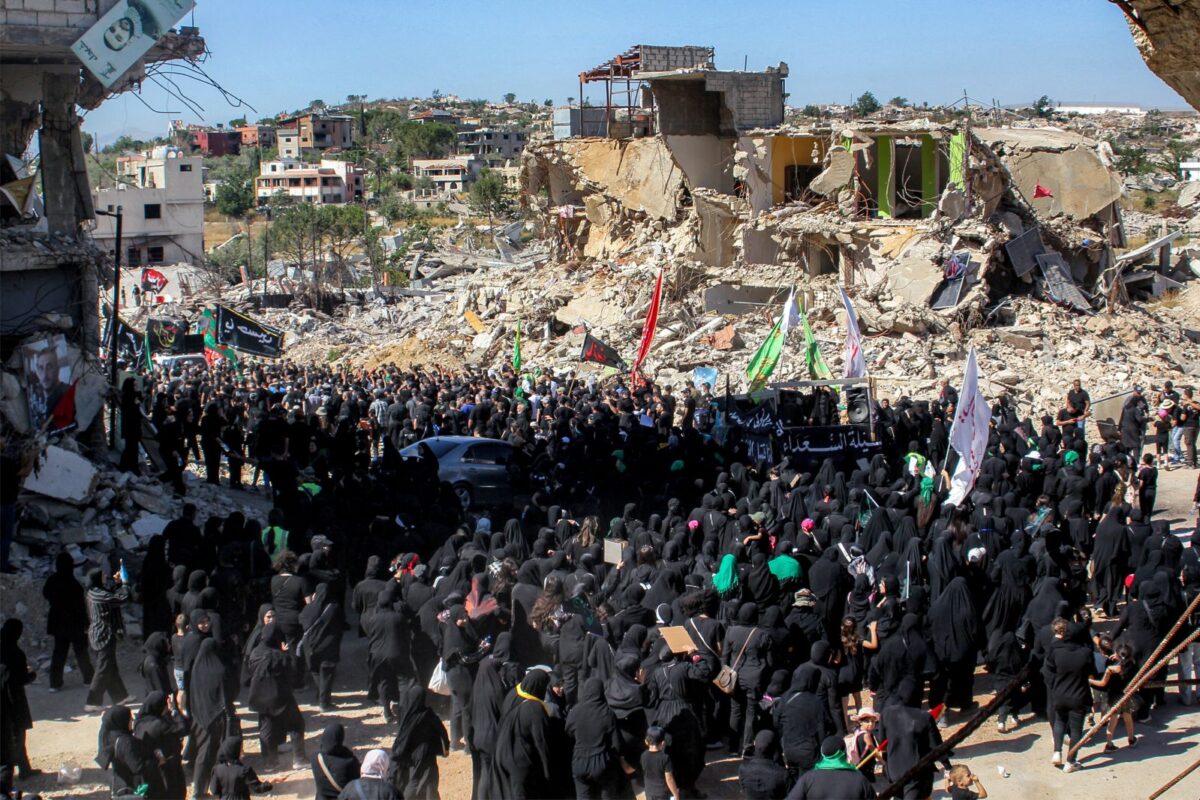
Many voices have recently emerged in Lebanon calling for the need to deal with the war rubble and waste in an environmentally friendly manner, avoiding the enormous negative consequences that could result from its misuse
The fate of these tons of waste is unknown and the question is what safeguards are in place to ensure rubble removal is done in environmentally safe ways.
For over a year, Lebanon has been exposed to numerous pollutants and hazardous materials such as white phosphorus. These materials pose a significant environmental risk and pollution, both in their location and during subsequent treatment and handling processes.
Environmental specialists emphasize that the removal and transportation of rubble and waste to distant locations present significant challenges due to the considerable environmental and health risks involved. This debris may contain hazardous materials such as solar panels, batteries, electrical and electronic devices, and even ammunition.
Meanwhile, life is practically on pause in the country as it waits for reconstruction. Funds are being funnelled to various bodies, like the South Council, the Higher Relief Committee and the Union of municipalities of Dahieh to manage cleanup and rebuilding, but without transparency or proper oversight, there is a real fear that corruption will take priority over environmental protection.
Hidden cancer beneath the rubble?
Dr. Charbel Afif, head of the Chemistry Department at Saint Joseph University and an expert on air pollution warns that the danger from “war dust” released after every air strike didn’t end with the explosions themselves. Some of the toxic particles seep into the soils and water, and if the rubble isn’t cleared away in an environmentally safe way, it could get kicked back into the air all over again.
This causes symptoms like shortness of breath and long-term health risks. Dr. Afif points out that Israeli missiles contain heavy metals and organic toxins. Over time, exposure to these pollutants could increase the risk of cancer, just like the emissions from diesel generators. These effects do not show up right away, it could take years for the damage to become clear.
Tons of debris still cover neighborhoods hit by Israeli airstrikes. Without clearing this debris, the first step of reconstruction can’t even begin and without that, displaced residents can’t fully return to their homes. At the moment, discussions around what to do with the rubble are ongoing.
Various options and scenarios are being floated, but no clear or unified decision has been made.
The physical wounds on the landscape are clear, but they also reflect deeper economic and social consequences that will take years to repair.
Environmental and public health specialists have voiced serious concerns regarding a proposal to use rubble for backfilling at the Costa Brava landfill, located south of Beirut.
Experts warn that such actions could pose significant environmental risks, particularly due to the potential contamination of debris from Israeli airstrikes. Hazardous substances such as white phosphorus could seep into the soil, causing long-term pollution.
The Costa Brava landfill is one of the largest waste disposal sites in Beirut and lies in close proximity to the capital’s international airport.
Municipalities and the much-needed support
Since the fighting stopped, municipalities have done what they can with their limited resources clearing rubble from roads and trying to restore basic access.
But beyond that, there’s little they can do without external support, according to officials from municipalities. “We’re waiting on the relevant government bodies to make a decision about the full-scale debris removal,” The town’s mayor, Ziad Wakid stated.
While that’s a step forward, many questions remain on what exactly is the mechanism for executing this massive cleanup, and more importantly, what will it cost to remove the tons of rubble left behind by the Israeli strikes?
The groundwork may be laid, but the implementation and the funding are still a work in progress.
What happens to all that rubble?
Concerns are growing around the potential environmental impact, especially with reports that some of the rubble might be dumped into the sea, a step that could have serious ecological consequences.
As the country struggles to manage the aftermath, the focus must remain on finding sustainable and transparent solutions that don’t just clear the damage but also avoid creating new problems down the line.
Debris removal: a process that requires precision and responsibility
Najat Aoun Saliba outlined the essential steps for safely and responsibly removing the rubble left behind by the war.
“The first priority,” she explained, “is for the army to ensure the area is secure, followed by a full site assessment, including laboratory tests, soil analysis, and checks to confirm that there are no radioactive or harmful materials present.”
Saliba emphasized that any debris removal plan must be sustainable. “It’s the state’s responsibility to manage this process properly, particularly because Lebanon is a signatory to key international agreements like the Barcelona and Paris accords on climate change.”
She also warned against proposals to dump the rubble into the sea, a step that would violate both Lebanese and international environmental laws. “Using the debris in this way serves private and political interests, not the public good,” she said. “The sea is public property. Any attempt to bury this waste offshore is not only illegal but an environmental crime.”
Instead, Saliba stressed the importance of finding ways to recycle and repurpose the rubble, an approach that aligns with international standards and protects Lebanon’s natural resources for future generations.
Rodayna Raydan is a Lebanese-British journalist. You can follow her on Twitter @Rodayna_462
The views in this story reflect those of the author alone and do not necessarily reflect the beliefs of NOW.








